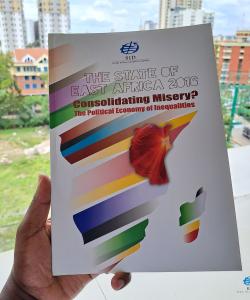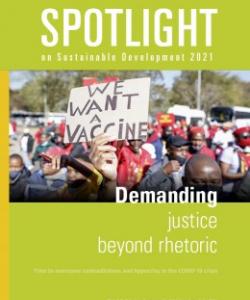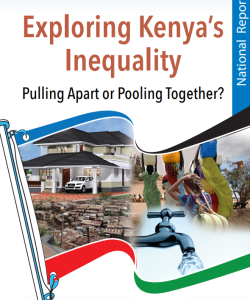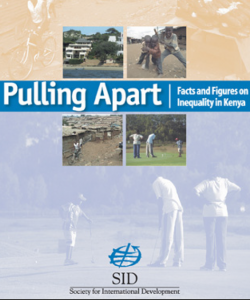The State of East Africa 2016: Consolidating Misery? The Political Economy of Inequalities
Tackling inequalities has become one of the more pressing public policy concerns of today - at least that is the impression given by the rhetoric of key policy actors. Acknowledging the extent to which inequalities have rendered the playing field uneven is a start. However, it is unlikely that there will be any lasting changes until the structures that have allowed for and perpetuated these inequalities are dismantled and reorganized to ensure that the development and growth outcomes we seek are much more equitable.
This report aims to explore and offer for reflection, some of the challenges that the region will need to face up to, if it is to successfully transform its economies in order to drive up domestic demand, build and nurture local economic systems and improve the skills of its labour force in a virtuous process that recognizes our institutions and processes to ensure that the majority of citizens have an active stake in change processes of the day. The report offers some hypotheses as to why inequalities persists and why efforts to address them (narrow the gap) are unlikely to be successful in the absence of a committed attempt to dismantle and recreate the institutions that distribute power and the networks that have emerged to extract benefits from them. It thus makes the argument the inequalities survive thanks to the structure of the institutions we have put in place, and it is only by reforming these institutions that we can truly address the challenges that inequalities generate.
This is the eighth (8th) report off the State of East Africa Report series, whose objective is to continue with the report's tradition of providing new information, new insights and unlocking our collective imagination to contribute to an East African Community that trull is people centred.




